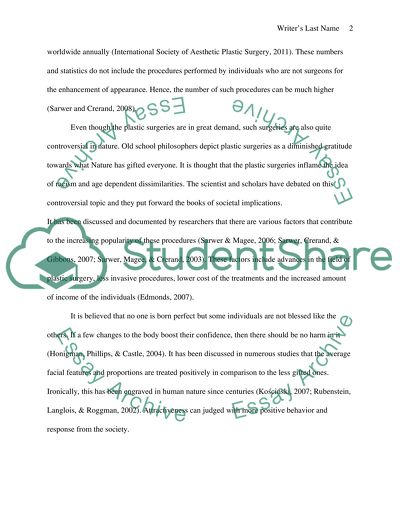Cite this document
(“Long-term Psychological Satisfaction & Plastic Surgery Research Paper”, n.d.)
Retrieved de https://studentshare.org/psychology/1490619-plastic-surgery
Retrieved de https://studentshare.org/psychology/1490619-plastic-surgery
(Long-Term Psychological Satisfaction & Plastic Surgery Research Paper)
https://studentshare.org/psychology/1490619-plastic-surgery.
https://studentshare.org/psychology/1490619-plastic-surgery.
“Long-Term Psychological Satisfaction & Plastic Surgery Research Paper”, n.d. https://studentshare.org/psychology/1490619-plastic-surgery.


